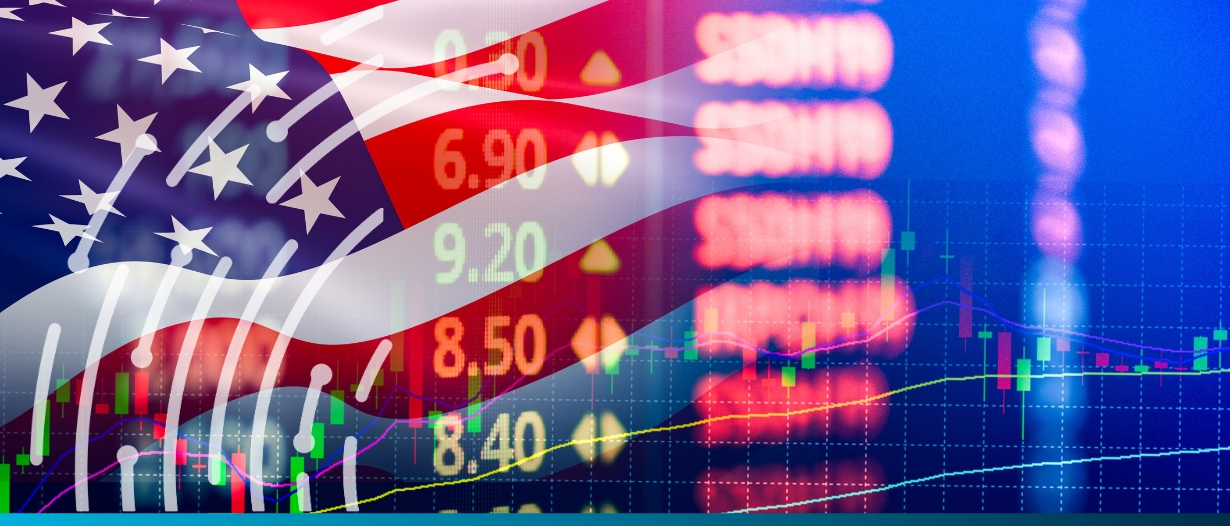Estimated reading time: 4 minutes
Global markets are continuing their descent today as the impact of the tariffs announced on Thursday becomes clearer.
With more details being released by the US and some countries already releasing significant retaliatory tariffs, a clearer picture is emerging – one of a global economy which will be, at least for a short while, deeply affected by the sweeping tariff regime. Changes and adjustments resulting from this are expected to have far-reaching effects on the global trade industry, diverting trade flows and transforming supply chains.
When Asian markets opened this morning, it was clear their adjustment to Trump’s tariffs was far from over. Japan’s Nikkei lost 7.8% and China’s main index, the Shanghai composite, lost 7.3%, the biggest fall since the 2020 pandemic. Hong Kong’s Hang Sei index had the biggest one-day drop in 28 years, closing at -13.2%. On the other hand, Asian currencies may see a resurgence as investors move away from the dollar and towards “safe havens” like the Japanese yen, Swiss franc, and Euro, all of which have risen in the past few days.
Many Asian countries have been among the hardest-hit by Trump’s tariffs, with China subject to a staggering total 54% tariff. The US is by far China’s biggest trading partner, and the recently announced 34% retaliatory tariff is expected to hit US exporters hard when it goes into effect on 10 April.
The two most important Indian stock indexes fell by around 5% on opening, likely in response to the 26% tariffs imposed by the US. This was in part driven by Tata motors, one of the largest Indian auto companies, which fell by over 10%. Jaguar Land Rover, one of its subsidiaries, was the first major company to announce it would halt shipments of its UK-made cars to the US due to the tariffs levied on the global auto industry.
Amid fears of a US recession – which analysts like Goldman Sachs are now forecasting with near-certainty if all the tariffs go into effect as announced – oil prices have also dropped to a 4-year low. Brent crude, the benchmail oil marker, has continued its fall started on Friday, now costing $63.49 a barrel compared to last year’s average of about $80.
European markets, which opened just a few hours ago, are experiencing similar shockwaves. While the UK has been widely seen as avoiding the worst of the tariffs, only being subject to the baseline 10% tariff levied against all countries (even uninhabited Antarctic islands), London’s FTSE 100 lost 4.9%. The German stock exchange fell by 10% when markets opened but has now recovered to just -5.9%, while the French Cac 40 fell by 5.7%.
This is as EU members grapple with high tariffs of 20% as well as a 25% tariff on foreign cars set to go into effect soon, which is expected to affect the already struggling German auto industry. Companies with complex supply chains, like car manufacturers, could see an exponential effect of tariffs, especially if an intermediate step of the manufacturing process happens in the US.
The agricultural industry, too, could experience significant turbulency, as some of the countries most affected by the tariffs, such as Vietnam and Taiwan, are also among the world’s biggest coffee, cocoa, and crop exporters. This could have a ripple effect both in consumer purchasing power and in global supply chains – for example, strengthening trade between the US and Brazil, another big coffee producer that has been hit less by the tariffs.
As companies look into diverting their supply chains, smaller players might unexpectedly come at the forefront of global trade. San Marino, a small city-state on the Adriatic coast of Italy, has been eyed as a way for some EU countries to evade US tariffs, which are 20% on the EU but only 10% on San Marino.
It’s still hard to tell just how much the tariffs will impact the global economy, and how – as seen by the volatile response of markets to the changes. Retaliatory tariffs on the one hand could exacerbate the situation and lead to an all-out global trade war, while negotiation attempts could de-escalate current tensions and lead to a much softer impact on the global economy.























